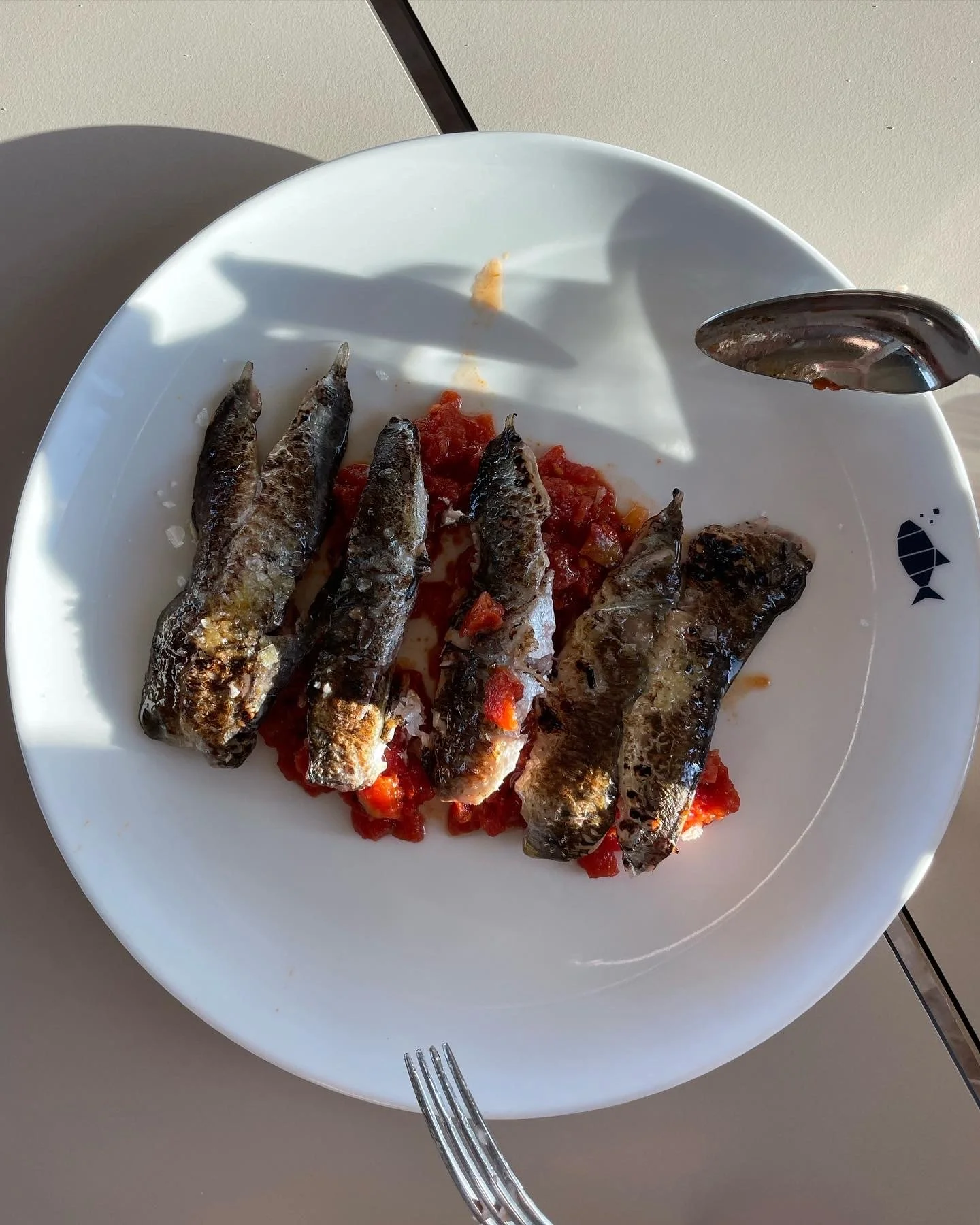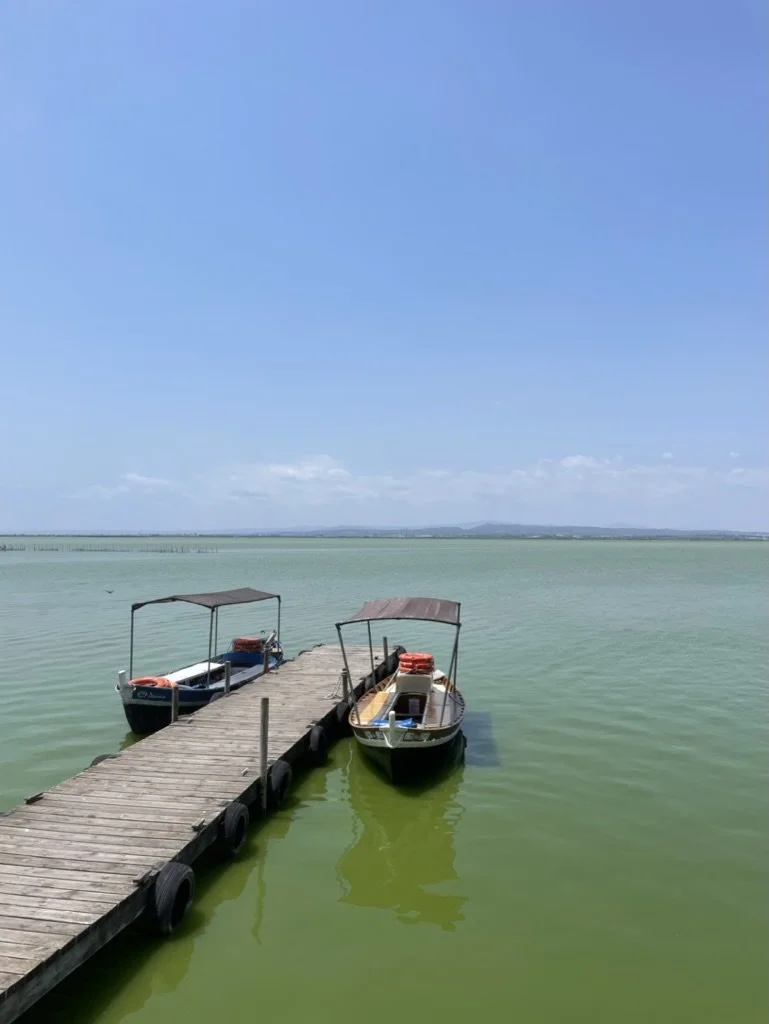Spanish Sardines from València’s L’Albufera
Photo provided by Isabella Schnee.
Halfway down Spain’s eastern coast, about two hundred miles south of Barcelona, is a small parador with a panoramic view of the water. Paradores are state-owned hotels that line the country’s roadside and provide lodging for travelers as part of a national tourism initiative. The project began in 1910 and was formalized in 1928. It filled Spain’s need to accommodate visitors and strategically market a cultural identity. Today, the network of 98 hotels includes castles, restored convents, seaside and mountain-nestled inns dotting Cádiz, and Girona, among plenty others.
Photo provided by Isabella Schnee.
València’s Parador El Saler overlooks the Mediterranean from within the Albufera Natural Park. L’Albufera is the birthplace of paella. It spans over 21,000 hectares and is a biodiverse haven, with a freshwater lagoon at its heart, surrounded by marsh and rice paddies. Separating lake from sea is La Devesa, a coastal forest that keeps the water used for rice cultivation salt-free.
A server at the parador’s restaurant La Barraca makes his way towards our table, pushing a tall and narrow card. On it are dishes to be finished here, in front of the diners. Judy, an Argentine expat who moved to València at twenty-three and quickly lost her native accent, ordered the region’s staples. We watch eagerly as he takes a blowtorch to six thick sardines lined up on a steel spatula. They’re sprinkled with coarse, flakey salt and topped with a sprig of rosemary. This simple but flamboyant preparation is a proud offering of their most prized catch. Fresh fish caught in fiercely protected waters, a thousand-yearlong history of growing rice, and deep care for how these ingredients are treated at every stage are just a few expressions of how Valencians revere their food. It’s infectious—and infuses every bite.


